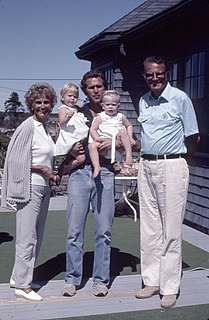A Quote by Rana Dasgupta
You'll live astride the line that separates life from death. You'll become experienced in the wisdom of grief. You won't wait until people die to grieve for them; you'll give them their grief while they are still alive, for then judgment falls away, and there remains only the miracle of being.
Related Quotes
I think grief is a huge subject; it's one of the things that everybody is going to confront in one way or another. There's been a lot of books written about how Americans have an odd way of trying to defer grief or minimize the need to grieve. People used to have a lot more ritual grief in their lives. For the most part, we think of it as a strictly temporal process: you grieve for a time and then you're over [it], but it's also a spatial process. It travels across a map.
There is neither happiness nor misery in the world; there is only the comparison of one state with another, nothing more. He who has felt the deepest grief is best able to experience supreme happiness. We must of felt what it is to die, Morrel, that we may appreciate the enjoyments of life. " Live, then, and be happy, beloved children of my heart, and never forget, that until the day God will deign to reveal the future to man, all human wisdom is contained in these two words, 'Wait and Hope.
When you pray to God resignedly, as though patiently accepting the punishment of grief at the death of a loved one, and you say: "Thy will be done O Lord. The Lord giveth, and he taketh away", you have not yet known the God of love, for God giveth only. God never takes that which has not been given. What God gives to you you regive to Him for His regiving.
You rejoice when God gives birth to life, yet you deeply grieve when you give rebirth to new life - for that is what death is.
If, as a culture, we don’t bear witness to grief, the burden of loss is placed entirely upon the bereaved, while the rest of us avert our eyes and wait for those in mourning to stop being sad, to let go, to move on, to cheer up. And if they don’t — if they have loved too deeply, if they do wake each morning thinking, I cannot continue to live — well, then we pathologize their pain; we call their suffering a disease. We do not help them: we tell them that they need to get help.
Grief causes you to leave yourself. You step outside your narrow little pelt. And you can’t feel grief unless you’ve had love before it - grief is the final outcome of love, because it’s love lost. […] It’s the cycle of love completed: to love, to lose, to feel grief, to leave, and then to love again. Grief is the awareness that you will have to be alone, and there is nothing beyond that because being alone is the ultimate final destiny of each individual living creature. That’s what death is, the great loneliness.
He emphasised basic truths: you are not dying yet, you have to live your life until you are. Underpinning them was the belief that the grim reality of impending death can be talked away by trying to invest in the present reality of life. I didn’t believe that at the time, but now I do. By definition, you have to live until you die. Better to make that life as complete and enjoyable an experience as possible, in case death is shite, which I suspect it will be.







































